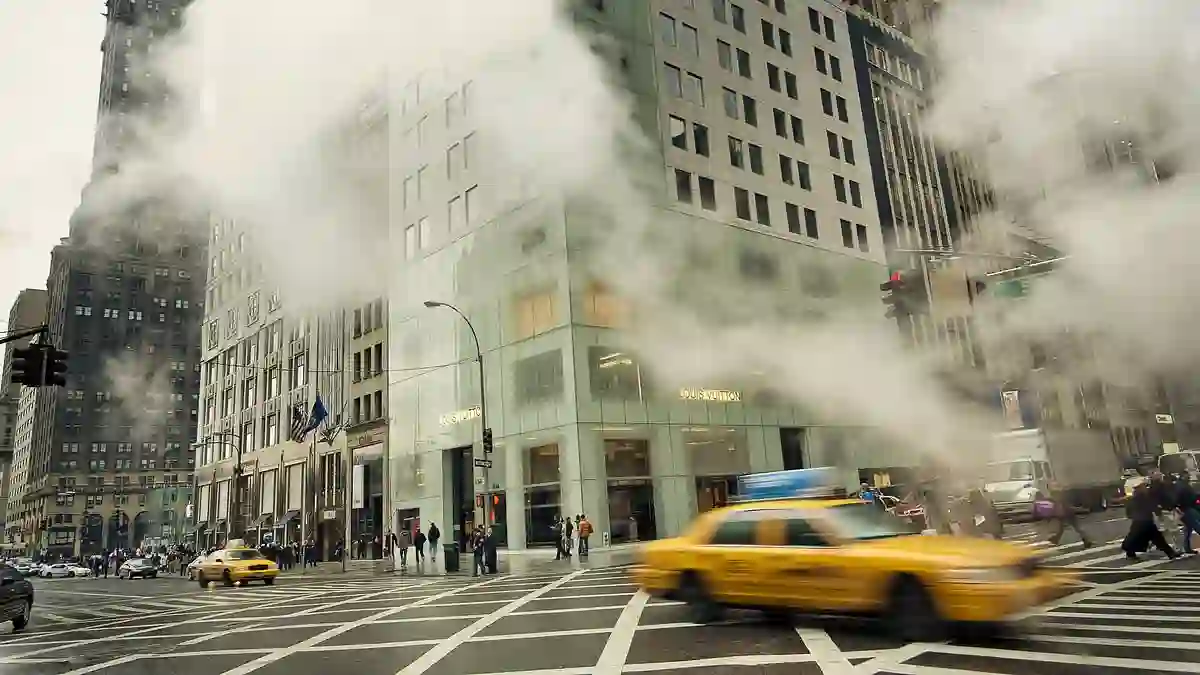New Yorkers are on high alert after the city reported its fifth death in a growing outbreak of Legionnaires’ disease, a serious lung infection caused by bacteria in warm water systems.
The outbreak, first detected in late July, has now affected 108 residents across Harlem, East Harlem, and Morningside Heights, sparking fears that more cases may follow.
The disease, which initially mimics flu-like symptoms before progressing to pneumonia, poses a particularly high risk to older adults, smokers, and those with chronic lung conditions.
Understanding Legionnaires’ Disease
Legionnaires’ disease is caused by Legionella bacteria, which thrive in warm water and can become airborne through steam.
While air conditioners can also spread the bacteria, city officials have confirmed that cooling towers were the primary source in this outbreak.
Symptoms begin with headaches, muscle aches, and high fevers — sometimes exceeding 104°F (40°C) — and can escalate to severe pneumonia.
In serious cases, the infection can spread to the bloodstream, causing sepsis, kidney failure, or lung failure.
Milder cases may present as Pontiac fever, causing fever, chills, headache, and muscle aches without lung infection.
This condition typically resolves on its own.
Hotspots and Containment Efforts
All confirmed cases and deaths are concentrated in five ZIP codes: 10027, 10030, 10035, 10037, and 10039.
Officials confirmed that the latest death had been under investigation and was officially added to the cluster on Monday.
The last of 12 cooling towers that tested positive for Legionella was treated and disinfected last Friday, including towers at a Harlem hospital and a building housing a Whole Foods grocery store.
While infections are still rising, the rate of new cases is slowing, suggesting the bacteria may now be contained.
Medical Advice for Residents
Doctors stress the importance of early intervention. Dr. Omer Awan, a professor of epidemiology, told the Daily Mail:
“Legionnaires’ disease can appear like the flu, but it can escalate quickly to pneumonia.
Patients may experience high fever, cough, shortness of breath, nausea, vomiting, and mental confusion.”
Dr. Michael Genovese, a medical advisor in NYC, added that high-risk groups include older adults, smokers, those with chronic lung conditions, and immunocompromised individuals.
He urged anyone experiencing symptoms such as chest pain, trouble breathing, or confusion to seek immediate medical attention.
Treatment typically involves antibiotics, which are most effective in the early stages before the infection spreads.
Doctors often use chest X-rays and urine or sputum tests to confirm the diagnosis.
Lessons from Past Outbreaks
This outbreak follows a major Legionnaires’ outbreak in the Bronx in 2015, which infected 155 people and caused 17 deaths.
That outbreak was traced back to a contaminated cooling tower at the Opera House Hotel.
City and health experts are warning residents to stay vigilant: avoid standing in mists or sprays from cooling towers, air conditioning vents, decorative fountains, or outdoor water systems in affected areas.
Public hot tubs and spas should also be avoided.
Dr. David Dyjack of the National Environmental Health Association emphasized that prevention depends largely on building owners maintaining water systems.
Residents, while vigilant, cannot fully eliminate their risk.
Staying Safe and Informed
For New Yorkers in the affected neighborhoods, doctors recommend maintaining good personal health practices: get adequate sleep, stay hydrated, eat nutritious meals, and avoid smoking.
Early detection is key, and anyone with flu-like symptoms should inform their healthcare provider about the outbreak.
The city continues to monitor the situation closely, working to contain the bacteria and prevent further fatalities.



